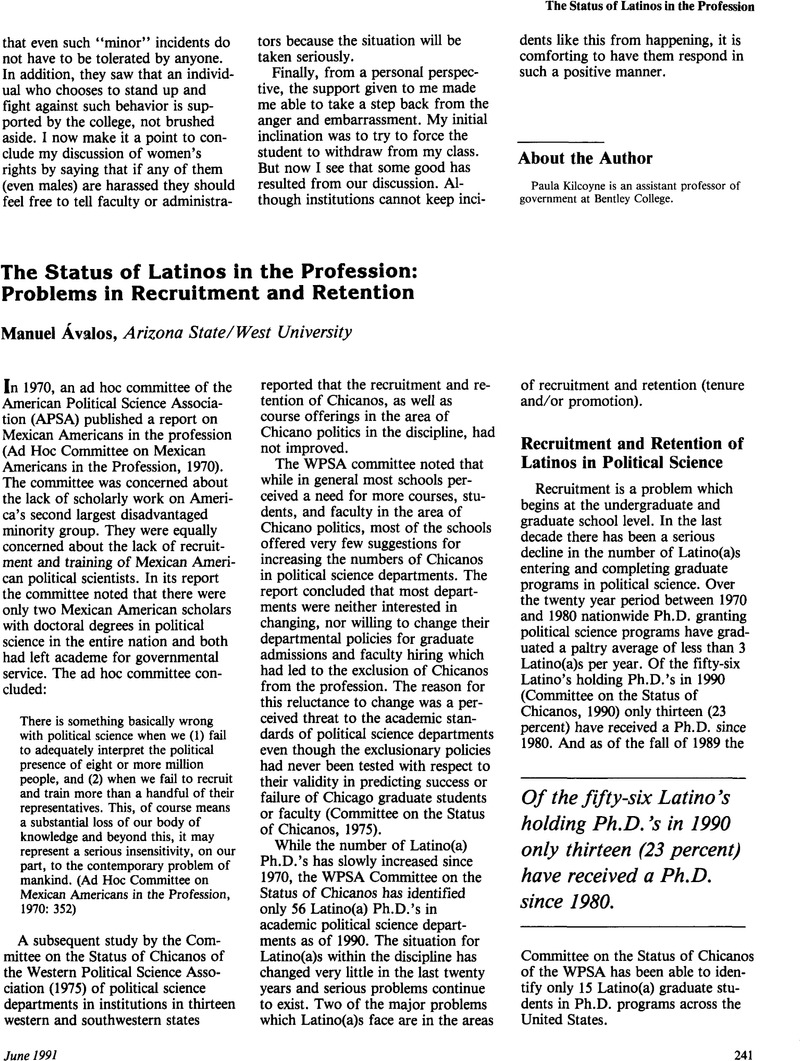Crossref Citations
This article has been cited by the following publications. This list is generated based on data provided by Crossref.
Marquez, Benjamin
1993.
Reconceptualizing Mexican American Politics.
Political Research Quarterly,
Vol. 46,
Issue. 3,
p.
691.
1993.
References.
ASHE-ERIC Higher Education Report,
Vol. 22,
Issue. 3,
p.
79.
Aguirre, Adalberto
1995.
The Status of Minority Faculty in Academe.
Equity & Excellence in Education,
Vol. 28,
Issue. 1,
p.
63.
Andersen, Kristi
and
Miller, Elizabeth D.
1997.
Gender and Student Evaluations of Teaching.
PS: Political Science & Politics,
Vol. 30,
Issue. 2,
p.
216.
Prindeville, Diane-Michele
and
Bretting, John G.
1998.
Indigenous Women Activists and Political Participation.
Women & Politics,
Vol. 19,
Issue. 1,
p.
39.
Martinez-Ebers, Valerie
Avalos, Manuel
Hardy-Fanta, Carol
Lopez, Linda
Segura, Gary
and
Schmidt, Ronald
2000.
An Update on the Status of Latinos y Latinas in Political Science: What the Profession Should Be Doing.
PS: Political Science & Politics,
Vol. 33,
Issue. 4,
p.
899.
Aoki, Andrew L.
and
Takeda, Okiyoshi
2004.
Small Spaces for Different Faces: Political Science
Scholarship on Asian Pacific Americans.
PS: Political Science &
Politics,
Vol. 37,
Issue. 3,
p.
497.
Norris, Adele N.
Zajicek, Anna
and
Murphy-Erby, Yvette
2010.
Intersectional Perspective and Rural Poverty Research: Benefits, Challenges and Policy Implications.
Journal of Poverty,
Vol. 14,
Issue. 1,
p.
55.



